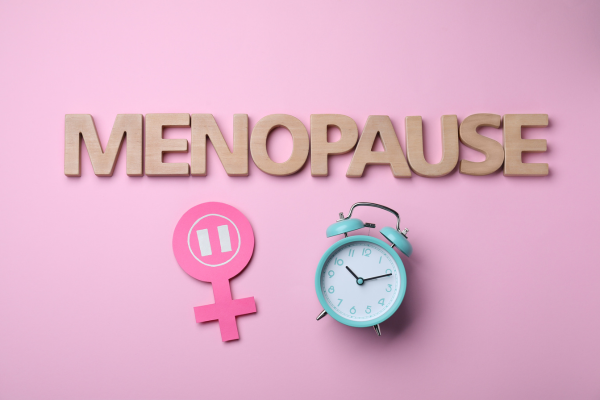Are you tired of being told to just “tough it out” through menopause?
The truth is, suffering in silence shouldn’t be the norm.
Hot flashes, mood swings, insomnia—these are more than just inconveniences; they can derail your daily life.
Yet, conventional wisdom often pushes prescription meds as the only solution, overlooking safer, natural alternatives.
Why put your body through synthetic hormone therapy when the right supplements could do the job without the risks?
In this post, we’ll dive into the best supplements for menopause that not only ease your symptoms but help you regain control during this challenging phase.

1. Black Cohosh
When hot flashes and night sweats hit, Black Cohosh is often touted as the go-to remedy.
Studies suggest that Black Cohosh may mimic the effects of estrogen, helping to regulate temperature control and reduce night sweats.
For dosage, experts generally recommend taking 20-40 mg twice daily, but consistency is key.
Results usually become noticeable after 4-8 weeks of use. [1]
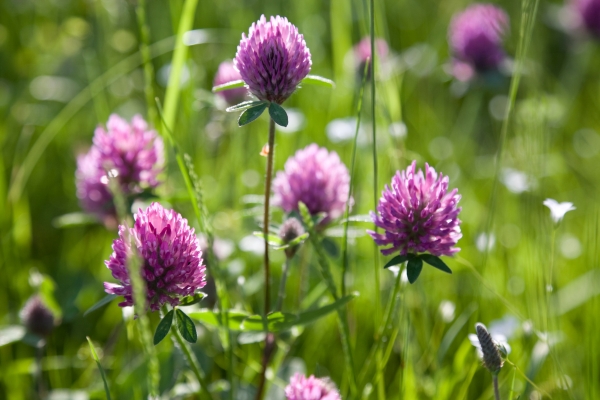
2. Red Clover
If you’re looking for something that targets hormone balance, Red Clover could be your answer.
This supplement is rich in isoflavones, a type of phytoestrogen that can mimic estrogen in the body.
For women dealing with mood swings, irritability, and other emotional rollercoasters, Red Clover’s hormone-balancing effects might be able to help.
Taken regularly, it can help ease the transition through menopause.
Dosage typically ranges from 40-80 mg daily, but it’s best to consult with a healthcare provider for personalized advice. [2]
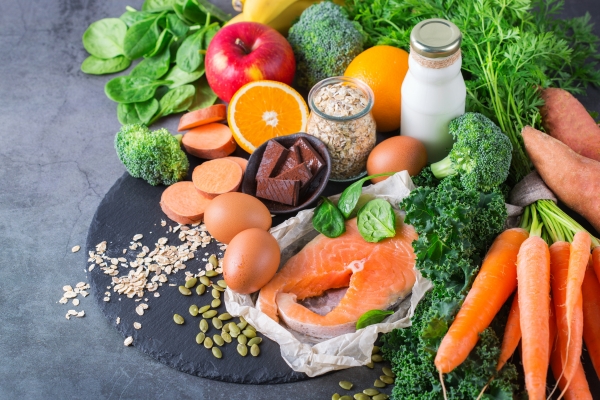
3. Vitamin D and Magnesium
As estrogen levels decline during menopause, the risk of osteoporosis surges due to decreased bone density.
While Vitamin D is often hailed as essential for calcium absorption and bone health, what’s often overlooked is that Vitamin D can’t be activated without sufficient Magnesium levels in the body.
Without magnesium, your body can’t convert Vitamin D into its active form, making supplementation of both crucial.
For women in menopause, ensuring a balance of both Vitamin D and magnesium is key.
Aim for 600-800 IU of Vitamin D daily along with 300-400 mg of Magnesium to support bone health, nerve function, and better sleep.
Food sources like fatty fish, dairy, leafy greens, nuts, and seeds are good options, but supplements are often necessary to reach optimal levels.
By pairing these two nutrients, you enhance the effectiveness of Vitamin D, ensuring your bones get the protection they need during menopause. [3] [4]
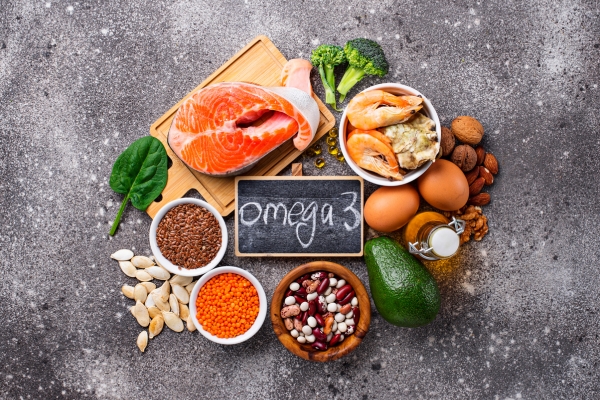
4. Omega-3 Fatty Acids
Mood swings, joint pain, and even brain fog—Omega-3 fatty acids can help address multiple menopause symptoms.
Omega-3s are powerful inflammation fighters that help balance mood, ease joint pain, and boost brain health.
You can get Omega-3s from fish oil supplements, flaxseed oil, or even algae-based options if you’re plant-based.
A daily intake of 1,000-2,000 mg of EPA and DHA combined is generally recommended for maximum benefits. [5]
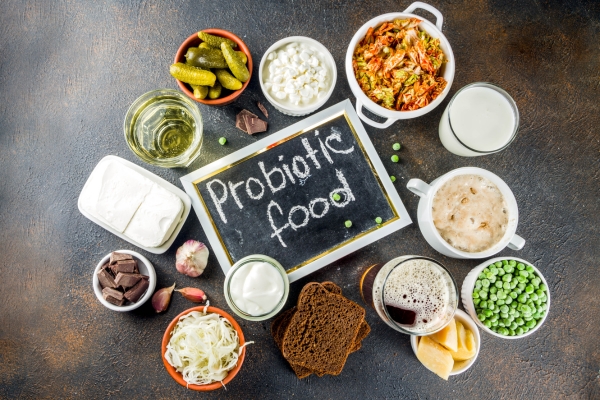
5. Probiotics
During menopause, hormonal changes can impact gut health, leading to symptoms like bloating, weight gain, and even mood disturbances.
Probiotics work by balancing the gut microbiome, which can influence everything from digestion to hormone regulation.
Certain probiotic strains, such as Lactobacillus rhamnosus and Lactobacillus reuteri, have been studied for their potential to improve vaginal health, reduce inflammation, and even alleviate some menopausal symptoms like hot flashes and mood swings.
Additionally, a healthy gut can improve the body’s ability to metabolize and regulate estrogen, which can have a positive effect on overall hormone balance during menopause. [6]
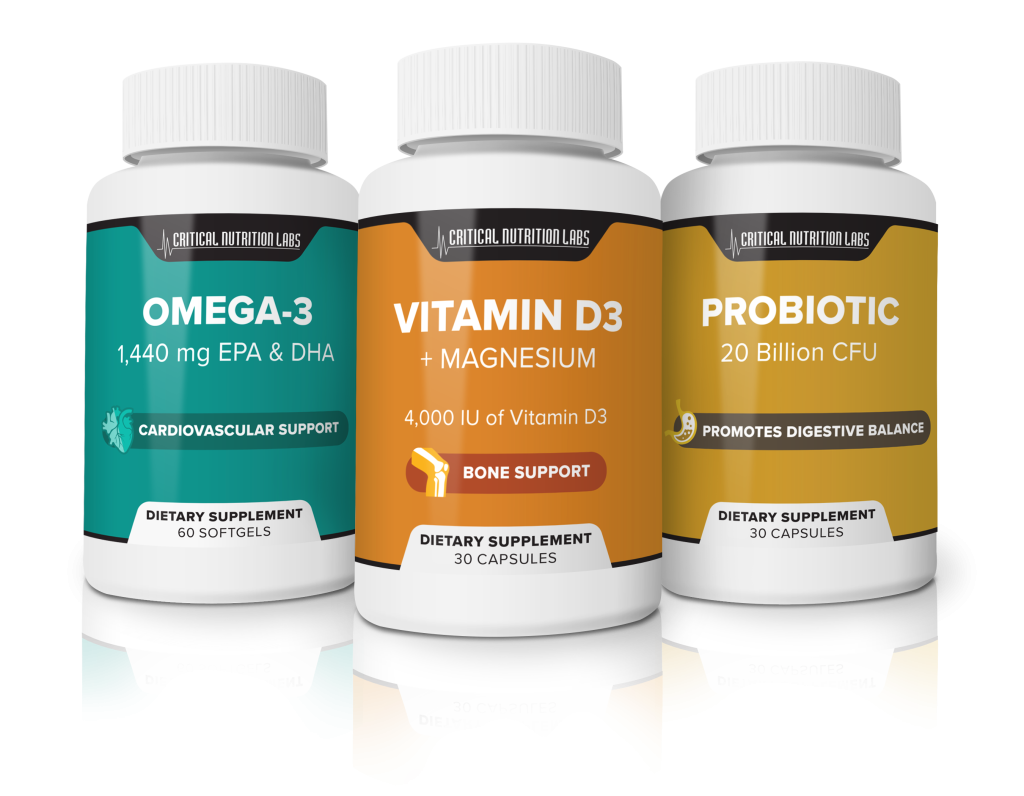
Take Control of Menopause with Our Triple Health Stack
Menopause doesn’t have to mean enduring discomfort and uncertainty.
With the right supplements, you can take control of your health and ease into this new phase feeling balanced and strong.
Our Critical Health Stack combines the power of Vitamin D3 and Magnesium for bone and hormone support, Omega-3s for mood stabilization and cognitive health, and Probiotics to keep your gut and digestion in top shape.
Together, these essentials target the root of menopause symptoms, helping you stay vibrant and energized.
Why settle for temporary fixes when you can address the core of your health with a comprehensive solution?
Try our Critical Health Stack today and experience the difference of targeted support that keeps you thriving during and beyond menopause.
References
Nutrients
Kanadys W, Barańska A, Błaszczuk A, Polz-Dacewicz M, Drop B, Kanecki K, Malm M. Evaluation of Clinical Meaningfulness of Red Clover (Trifolium pratense L.) Extract to Relieve Hot Flushes and Menopausal Symptoms in Peri- and Post-Menopausal Women: A Systematic Review and Meta-Analysis of Randomized Controlled Trials. Nutrients. 2021 Apr 11;13(4):1258. doi: 10.3390/nu13041258. PMID: 33920485; PMCID: PMC8069620.
Nutrients
Hassanein MM, Huri HZ, Baig K, Abduelkarem AR. Determinants and Effects of Vitamin D Supplementation in Postmenopausal Women: A Systematic Review. Nutrients. 2023 Jan 29;15(3):685. doi: 10.3390/nu15030685. PMID: 36771392; PMCID: PMC9919965.
Menopause
Park H, Qin R, Smith TJ, Atherton PJ, Barton DL, Sturtz K, Dakhil SR, Anderson DM, Flynn K, Puttabasavaiah S, Le-Lindqwister NA, Padula GD, Loprinzi CL. North Central Cancer Treatment Group N10C2 (Alliance): a double-blind placebo-controlled study of magnesium supplements to reduce menopausal hot flashes. Menopause. 2015 Jun;22(6):627-32. doi: 10.1097/GME.0000000000000374. PMID: 25423327; PMCID: PMC4442087.
Nutrients
Iqbal AZ, Wu SK, Zailani H, Chiu WC, Liu WC, Su KP, Lee SD. Effects of Omega-3 Polyunsaturated Fatty Acids Intake on Vasomotor Symptoms, Sleep Quality and Depression in Postmenopausal Women: A Systematic Review. Nutrients. 2023 Sep 30;15(19):4231. doi: 10.3390/nu15194231. PMID: 37836515; PMCID: PMC10574492.
Current Nutrition Reports
Barrea L, Verde L, Auriemma RS, Vetrani C, Cataldi M, Frias-Toral E, Pugliese G, Camajani E, Savastano S, Colao A, Muscogiuri G. Probiotics and Prebiotics: Any Role in Menopause-Related Diseases? Curr Nutr Rep. 2023 Mar;12(1):83-97. doi: 10.1007/s13668-023-00462-3. Epub 2023 Feb 7. PMID: 36746877; PMCID: PMC9974675.

